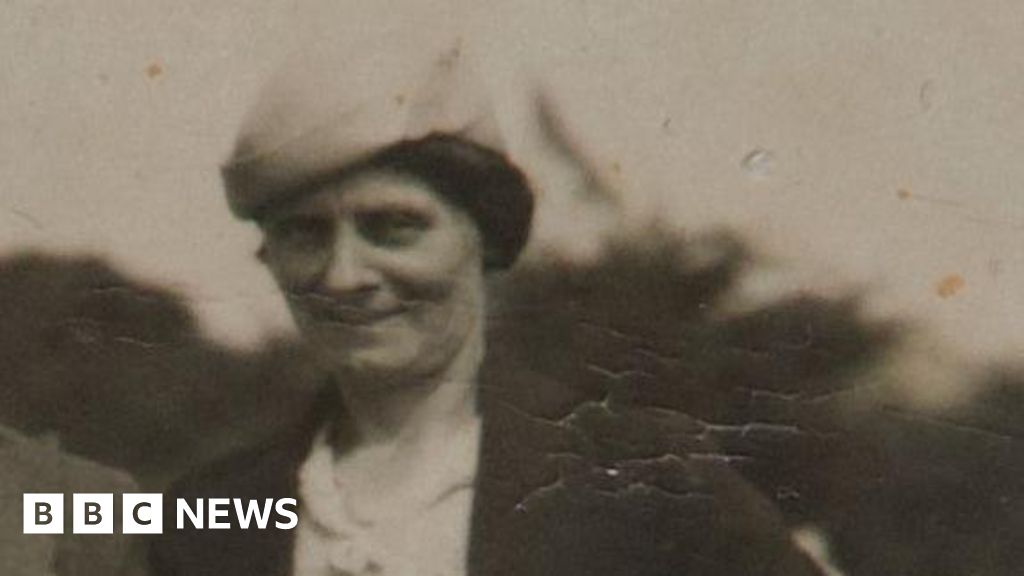A 92-year-old man has been found guilty of the rape and murder of a Bristol woman in a case that remained unsolved for nearly six decades. Louisa Dunne, 75, was found strangled on her living room floor by a neighbour on Britannia Road in Easton, Bristol, on 28 June 1967. Convicted rapist Ryland Headley, of Clarence Road in Ipswich, has now been found guilty of Mrs Dunne's murder following a trial at Bristol Crown Court. Senior investigating officer Det Insp Dave Marchant said Headley, who was in his 30s when he killed Mrs Dunne, was "predatory" and said his other crimes were "eerily similar". Headley is set to be sentenced on Tuesday. He was only linked to the mother-of-two's murder in 2023, when a review of the case uncovered new DNA evidence. Det Insp Marchant said: "This is a marrying of old school and new school policing techniques." He added it was believed to be the oldest cold case to be solved in the UK. Mrs Dunne had been twice widowed and lived alone, but was well-known in the local area. Headley was accused of forcing entry into her home before sexually attacking her and then strangling her. The night of her death,neighbours reported hearing a woman's "frightening scream". Det Insp Marchant said a neighbour was first alerted to something unusual happening when the paper they left for Mrs Dunne was not taken in on the morning of 28 June 1967. Despite the efforts of police 58 years ago, no key suspect was identified. It was only when the case was re-examined by Avon and Somerset Police decades later, that DNA testing of a swab that contained semen was linked to Headley. Follow BBC Bristol onFacebook,XandInstagram. Send your story ideas to us on email or viaWhatsApp on 0800 313 4630.
92-year-old man found guilty of 1967 murder
TruthLens AI Suggested Headline:
"Ryland Headley, 92, Convicted of 1967 Murder of Bristol Woman Louisa Dunne"
TruthLens AI Summary
A 92-year-old man, Ryland Headley, has been convicted of the 1967 murder and rape of Louisa Dunne, a 75-year-old woman from Bristol. The case remained unsolved for nearly six decades until new DNA evidence linked Headley to the crime. Mrs. Dunne was discovered strangled in her home on Britannia Road in Easton, Bristol, by a neighbor on June 28, 1967. At the time of the murder, Headley, who was in his 30s, was described by investigators as 'predatory,' and his history of sexual offenses made the details of the case eerily similar to his previous crimes. The investigation into Mrs. Dunne's murder was revived in 2023, leading to the breakthrough that identified Headley as the perpetrator after a review of evidence collected in the original investigation revealed DNA that matched him.
The conviction marks a significant milestone in UK criminal history, as it is believed to be the oldest cold case solved to date. Det Insp Dave Marchant, the senior investigating officer, highlighted the integration of traditional investigative methods with modern DNA techniques that led to this resolution. Mrs. Dunne was known in her community and had lived alone after being widowed twice. On the night of her murder, neighbors reported hearing a woman's scream, which alerted them to something unusual. Despite extensive efforts by law enforcement in 1967, the case went cold for decades until advancements in forensic science allowed for a renewed investigation, ultimately leading to Headley’s conviction. He is set to be sentenced in the coming days, bringing a long-awaited sense of closure to the family and community affected by this tragic crime.
TruthLens AI Analysis
You need to be a member to generate the AI analysis for this article.
Log In to Generate AnalysisNot a member yet? Register for free.
